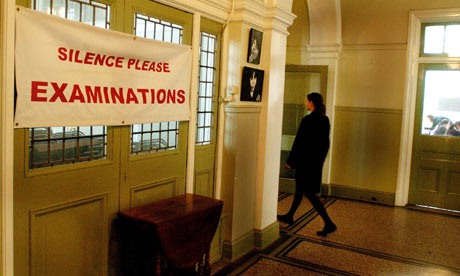It was reported this week that the Department for Education is considering new penalties for students who plagiarise essays. This comes after an investigation by the Times in 2016 found that 50,000 students had been caught cheating on their university degrees in the three years before.
Students were paying anywhere between £100 and £6,750 for an essay, and this widespread cheating has led to suggestions that criminal records could be dished out to offenders. But with a generation now forking out in excess of £50,000 for their degrees, is anybody surprised that a university education now feels like another asset that can simply be bought?
Since the 1990s, when Tony Blair brought in tuition fees, a number of changes have been introduced that have made the decision of whether or not to go to university more about your ability to afford it (or at least not be put off by the cost) and less about your desire to learn.
Fees have increased – in the most extreme cases nearly tenfold – since they were introduced, and bursaries have been removed for the poorest students, meaning that those without family money will inevitably end up paying more, as it will take them longer to pay off their loans.
This sends a very clear message to students: your money is just as important as your mind. The right grades aren’t enough to get you into university. You need the cash (or loan) to pay for it in the first place. Buying essays – any form of plagiarism – is clearly wrong, but it feels like the logical extension of an education that comes with a high and rising price tag.
Don’t get me wrong, I learned a lot at university. I went because I loved the subject that I wanted to study, I was hungry for more knowledge, and I wanted to self-improve. But for a lot of people, that’s not what university is for. The government itself, since the introduction of tuition fees, has justified them on the basis that students will end up earning more if they go to university – and so, for many, a degree feels like a route to a career rather than an opportunity to learn.
Employers have bought into the idea that university can simply be used as a proxy for employability, as is shown by the minimum 2:1 threshold required for most jobs, despite this not necessarily correlating with better performance at work. For students who feel they’re just buying a rubber stamp, what’s the point in putting in the effort?
If you plan to purchase, rather than partake in your degree, purely so you can meet that minimum 2:1 requirement, there are many ways to blag your way through it that require much less than a critical mind. You read your pre-decided list of writers, normally white male authors who have been on the list for years – often past the time when their novels felt culturally relevant or their theories genuinely held water. In fact, you don’t even have to read these writers – you can just go on SparkNotes and find a summary. Then you make some mundane criticisms that have probably been made by many others before – because, for some reason, no matter how many times students write the same essay on how Marx didn’t anticipate the resilience of capitalism, it’s apparently still worth saying. And then you move on to the next essay.
When large amounts of money are necessary to attend university, and degrees are described more and more often simply as a route to a profitable job, it’s not surprising that a pure interest in education is jettisoned.
It’s for this reason that I find the sudden dismay about all this cheating a bit of a joke. Of course action should be taken – cheating is a serious offence. But before we lament a situation in which thousands of students waste their time and opportunities by plagiarising rather than actually learning, we might want to ask how we got into this position in the first place. The £50,000 cost of a degree, rather than the comparative pennies spent on stolen essays, might be the first place to look.

